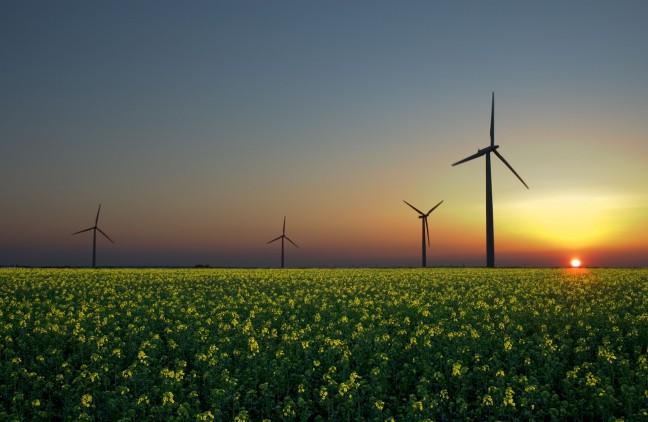Gov. Scott Walker signed a bill into law March 30 that will result in a $7 million cut to Focus on Energy, a statewide energy efficiency program.
The cut will save energy companies money, but opponents say that Walker’s actions follow a trend of disinvestment in renewable energy in Wisconsin.
We Energies, Wisconsin Public Service — which is owned by We Energies — and Alliant Energy will all save $2 million per year, Matt Landi, a Clean Wisconsin science and policy associate, said.
County board overrides executive veto over Alliant Energy Center redevelopment
While the aim of the law is to save money, Landi said the loss of funding for Focus on Energy will result in a net loss of money for Wisconsin.
Andrea Hansen, Focus on Energy spokesperson, said Focus on Energy is one of the most cost effective programs in the country. For every $1 that is spent on Focus on Energy, $3.33 is returned back to Wisconsin in the form of customer savings from using renewable energy sources, Hansen said.
“At one point, Wisconsin was really a front runner in leading on the national landscape, the charge in energy efficiency and renewable energy progress,” Hansen said. “To have this [cut] be a blow for the program is really tough.”
Despite record year for solar energy, Wisconsin still in ‘middle of the pack’
The $7 million cut is about a 7 percent cut to Focus on Energy, Tyler Huebner, RENEW Wisconsin executive director, said. If Focus on Energy could still use that money, it would leave to around $60 million in energy bill savings over the next 10 to 15 years, he said.
Focus on Energy installs energy efficient and renewable energy projects for homeowners, Hansen said. They also help provide engineering expertise and financial incentive to encourage businesses across Wisconsin to implement energy efficient practices.
Lucas Vebber, environmental and energy policy director for Wisconsin Manufacturers and Commerce, said the law fixes a problem where companies once had to pay into the Focus on Energy program twice.
Electric companies sell power to other suppliers who then resell that same power to residential customers, Vebber said. Electric companies had to pay into Focus on Energy for both of those sales, even though it was the same power. Under the new law, companies now only have to pay into the program when selling power to consumers, not to each other.
Landi said this cut comes at a bad time given the climate change conversation happening in the country right now. He said this lack of support for Focus On Energy sends the wrong message.
“What it ultimately does, is send businesses and companies that are in the industry of providing energy management services and renewable energy technologies … the wrong signal that Wisconsin isn’t supportive of their industry,” Landi said.
Despite national growth, wind power production stagnant in Wisconsin
Landi said this continues a trend of lack of support in Wisconsin for renewables, pointing to the opposition toward the Clean Power Plan, which would work toward cutting back on carbon emissions. The U.S. Supreme Court ruled to temporarily block the plan in February.
Vebber said the costs of the Clean Power Plan would be too great. If the Clean Power Plan is implemented, it would result in tens of thousands of jobs lost, he said.
Walker, Wisconsin officials applaud US Supreme Court decision to stay Clean Power Plan
Huebner, however, said investing in Focus on Energy can create jobs. He said Focus on Energy is driving up Wisconsin’s economic value.
“We think it’s a little short sighted that [lawmakers] would cut this program at a time when our economy is still struggling and this is a proven way to increase jobs,” Huebner said.
Focus on Energy creates around 2,000 jobs per year, Hansen said.
Hansen said Focus on Energy is trying to figure out what the ramifications of the cut will be. She said the group is working to minimize its effects.
“We’re going to continue to do our best to ensure that people across the state of Wisconsin can continue to take advantage of the program,” Hansen said.
A previous version of this article misquoted Matt Landi. The Badger Herald regrets this error.













